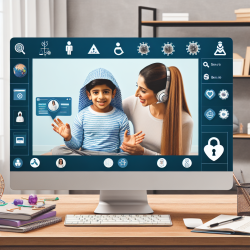The study compares two distinct rehabilitation interventions: a task/context-focused approach and a child-focused remediation approach. Here's a quick overview of the findings and how you can implement them to enhance your practice.
Key Findings
- Task/Context-Focused Approach: This method prioritizes functional performance over typical movement patterns. The goal is to enable children to achieve specific functional tasks identified collaboratively by the family, child, and therapist.
- Child-Focused Remediation Approach: This traditional method focuses on improving the child's abilities by addressing impairments in body function and structure.
Implementing the Task/Context-Focused Approach
The study's findings strongly support the task/context-focused approach for its effectiveness in improving functional outcomes. Here's how you can integrate this approach into your therapy sessions:
1. Promote Functional Performance
Focus on the child's ability to perform specific tasks rather than achieving "normal" movement patterns. Collaborate with families to identify functional goals that are meaningful and relevant.
2. Identify Periods of Change
Introduce interventions during periods of transition when the child is attempting new tasks or trying to do established tasks differently. This is often when they are most receptive to change.
3. Address Primary Constraints
Identify and modify the primary constraints preventing the child from achieving their functional goals. This could involve changing aspects of the task, environment, or the child's abilities.
4. Provide Opportunities for Practice
Ensure that children have ample opportunities to practice new skills in natural settings. Practice is crucial for refining skills and making them more automatic.
Encouraging Further Research
While the task/context-focused approach has shown promising results, it's essential to continue researching and refining these methods. Consider participating in or conducting further studies to explore new strategies and validate existing ones.
By adopting these evidence-based techniques, you can significantly improve the quality of life for young children with cerebral palsy and their families. For a deeper dive into the research, please read the original paper: Focus on Function – a randomized controlled trial comparing two rehabilitation interventions for young children with cerebral palsy.










